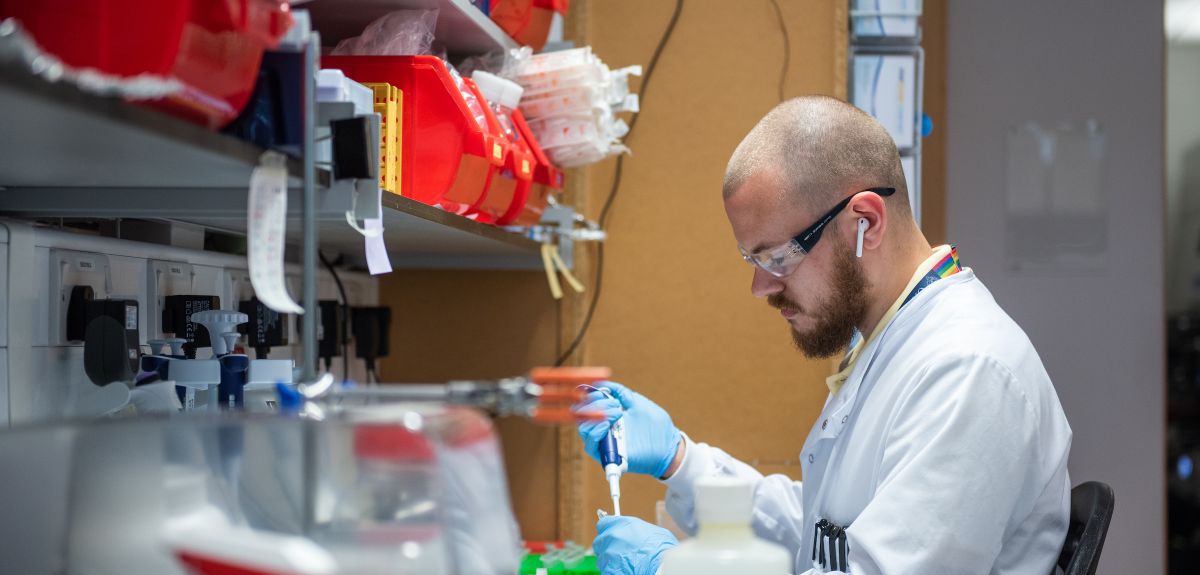
Oxford University welcomes UK regulatory emergency use authorisation of coronavirus vaccine
The University of Oxford welcomes the news that the UK Government has today accepted the recommendation from the Medicines and Healthcare products Regulatory Agency (MHRA) to authorise the emergency use of the ChAdOx1 nCoV-19 coronavirus vaccine in the UK.
Our vaccine work is progressing quickly. To ensure you have the latest information or to find out more about the trial, please visit the Oxford COVID-19 vaccine web hub or visit the COVID-19 trial website.
The Joint Committee on Vaccination and Immunisation (JCVI) will also publish its latest advice for the priority groups to receive this vaccine, with this announcement indicating that the JCVI has advised the priority should be to give as many people in at-risk groups their first dose, rather than providing the required two doses in as short a time as possible.
The second dose completes the course and is important for longer term protection, and everyone will still receive their second dose within 12 weeks of their first, an approach the JCVI believes will maximise the benefits of this vaccine, ensuring at-risk people are able to get meaningful protection and ease the pressure on the UK National Health Service.
Professor Andrew Pollard, Director of the Oxford Vaccine Group and Chief Investigator of the Oxford Vaccine Trial, said:
‘The regulator’s assessment that this is a safe and effective vaccine is a landmark moment, and an endorsement of the huge effort from a devoted international team of researchers and our dedicated trial participants.’
‘Though this is just the beginning, we will start to get ahead of the pandemic, protect health and economies when the vulnerable are vaccinated everywhere, as many as possible as soon possible.’
Professor Sarah Gilbert, Professor of Vaccinology at the University of Oxford, said:
‘This is a day for the team developing the vaccine to celebrate, after a year of extremely hard work under difficult circumstances. Now that the first authorisation or use of the vaccine outside of clinical trials has been granted, we still have more to do and will continue to provide more data to multiple regulatory authorities, until we are able to see the vaccine being used to save lives around the world.’
Professor Adrian Hill, Director of the Jenner Institute said:
‘For the past 25 years, staff at the Jenner Institute have worked to develop vaccines using novel technologies to protect people around the world from diseases that claim many lives each year. The work on ChAdOx1 nCoV-19 builds on many years of research by a dedicated team of vaccinologists, and we are delighted to see the first emergency use licensure.’
The Oxford vaccine (ChAdOx1 nCoV-19) is made from a weakened version of a common cold virus (adenovirus), that has been genetically changed so that it is safe and impossible for it to grow in humans. It is stable, easily manufactured, transported and stored at domestic fridge temperature (2-8 degrees C), so can be easily administered in existing healthcare settings, allowing for the vaccine to be deployed very rapidly.
Oxford University’s collaboration with AstraZeneca has been crucial to the successful development of the vaccine and vital for its global manufacturing and distribution across the world. AstraZeneca already has international agreements in place to supply three billion doses of the vaccine, with access being built through more than 30 supply agreements and partner networks.
A key element of Oxford’s partnership with AstraZeneca is the joint commitment to provide the vaccine on a not-for-profit basis for the duration of the pandemic across the world, and in perpetuity to low- and middle-income countries.
Professor Louise Richardson, Vice-Chancellor at the University of Oxford, said:
‘This is a great day for British science and a great day for universities everywhere. Above all, it is a great day for the many people whose lives will be saved by this vaccine. We are greatly indebted to those who have designed, developed, manufactured and evaluated ChAdOx1.’
Pascal Soriot, Chief Executive Officer of AstraZeneca, said:
‘Today is an important day for millions of people in the UK who will get access to this new vaccine. It has been shown to be effective, well-tolerated, simple to administer and is supplied by AstraZeneca at no profit. We would like to thank our many colleagues at AstraZeneca, Oxford University, the UK government and the tens of thousands of clinical trial participants.’
 Expert Comment: The war in the Gulf
Expert Comment: The war in the Gulf
 International Advisory Board to strengthen global leadership in primary care
International Advisory Board to strengthen global leadership in primary care
 Expert Comment: Church-to-mosque conversions grab headlines, but is funding the real crisis?
Expert Comment: Church-to-mosque conversions grab headlines, but is funding the real crisis?